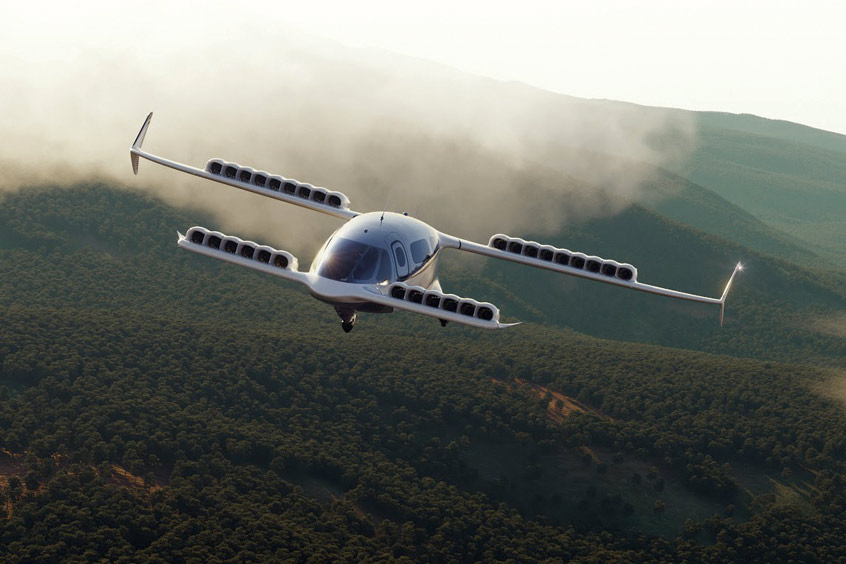Why visit ACE ’25?

A landmark international survey has revealed the scale of pent up demand for clean aviation, with 65 per cent of consumers across four countries calling for change. In a unique poll of 4,000 people across the US, UK, France and Germany, two-thirds (65 per cent) of consumers said that it is time for air travel to become sustainable.
The figures, unveiled by Lilium, also reflect wide excitement about the prospect of new forms of transport. Polled on a series of innovative travel methods, 60 per cent said they would try electric aviation, while 61 per cent specifically said they would like to try eVTOL aircraft such as the Lilium Jet, with demand strongest in Germany (64 per cent).
The research also revealed widespread concern over the impact on traditional aviation; 73 per cent said they were concerned about its contribution to pollution, with the proportion highest in Germany, and similarly backed by two-thirds of consumers in the US. Across all markets, 70 per cent also said they were concerned about the role of aviation in climate change.
The survey also highlighted the shift we are likely to see as a more sustainably-minded younger population continues to make up more of the travel decisions based on how sustainable it is. In the US, adults aged 18-34 are two and a half times more likely to focus on sustainability than those aged 55 or over when making travel decisions.
The figures have been released shortly after the aviation world gathered at Farnborough Air Show, where Lilium unveiled the full scale model of its Lilium Jet for the first time in the UK.
Respondents were also asked about the ways in which they would prefer to travel a journey of roughly 100 miles; while cars represented the most popular option, US respondents were most likely to opt for a flight as their second choice, choosing air travel over trains and other methods such as buses.
The most popular scenarios among consumers for these journeys included ‘getting around while on holiday’ (29 per cent), ‘exploring places within my country’ (28 per cent) and ‘exploring nearby regions’ (23 per cent), with US respondents polling especially in favour of domestic travel.
Across all territories, cost was regarded as the most important factor in making travel plans, with more than half ranking this as their top priority. However, this was closely followed by comfort and convenience of access, both areas in which low infrastructure options such as eVTOLs are able to outdo the alternatives.
Similarly, reflecting consumers' ill-feeling towards traditional air travel, one-in-three consumers across all markets said that ‘the amount of time spent at the airport’ should be a key goal for improving air travel.
The figures also reveal the importance of consumer awareness around new forms of transport.
Across all four countries, 21 per cent of respondents said they were aware of eVTOL aircraft and how they could be used, and this group was consistently the most enthusiastic about the future of aviation. This group was overwhelmingly more likely to agree that electric aviation is the future of air travel when compared to those who said they had never heard of eVTOL aircraft.
Similarly, these eVTOL evangelists were also the most likely to say that they could see themselves regularly switching from another mode of transportation (67 per cent), suggesting that current levels of enthusiasm are set to build further as awareness grows.
Lilium CCO Sebastien Borel says: “In four critical markets, this survey shows that one thing is clear: people are ready for a new form of transport, one that's more comfortable, convenient to access and meets their concerns on the environment. These numbers underline why Lilium, with more than 100 binding orders, leads the eVTOL market. While customers are demanding more sustainable ways of travel, with cost, comfort and convenience being important for them, regional air mobility is the key market providing higher time saving and better cost per mile. Moreover, we learned from our findings that for those well versed with eVTOL's potential, the excitement around electric aviation is even stronger. I believe that once our aircraft is in operations commercially, these numbers we have seen in this survey will increase.”
CEO Klaus Roewe adds: “The findings from this research should serve as a wake-up call for Europe and elsewhere to boost support for electric aviation. The demand and excitement for this new form of transport is clear, and the potential of electric aviation to contribute to solving the broader environmental issues and challenges in air transportation is significant. Aviation is at the heart of the global economy, whether it's for tourism and travel or logistics, but equally it's responsible for around 2.5 per cent of global CO2 emissions. Our industry can do this in a sustainable way, and we hope the US and Europe take the lead in establishing electric flight commercially.”
The research surveyed a nationally representative audience of 4,000 adults across the US, the UK, France and Germany. It was conducted between 10-16 July, 2024 by insight agency Opinium.